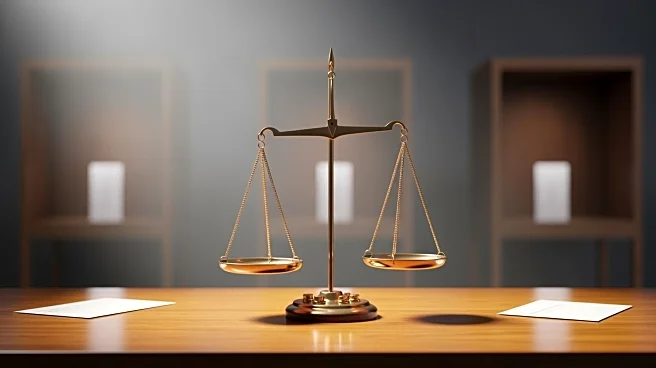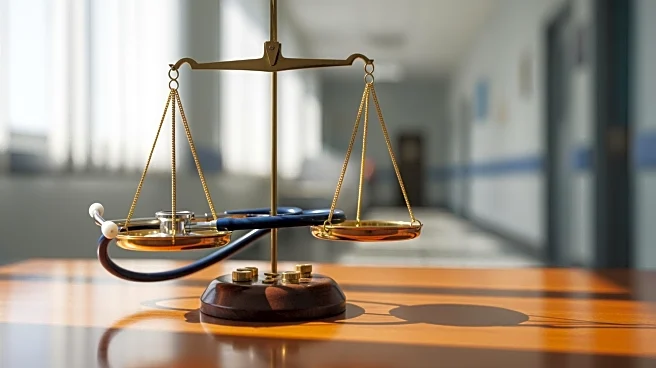What's Happening?
Pennsylvania voters are set to decide the fate of the state Supreme Court in the upcoming Nov. 4 election. The retention election will determine whether Democratic Justices Christine Donohue, Kevin Dougherty,
and David Wecht will continue their terms. Democrats currently hold a 5-2 majority on the court, but Republicans are campaigning to unseat the justices. If any justice is not retained, Democratic Governor Josh Shapiro could appoint a temporary replacement, subject to confirmation by the Republican-controlled state Senate. The election also includes races for other state courts and municipal positions in Pittsburgh and Philadelphia, with notable contests for mayor and district attorney.
Why It's Important?
The election could significantly impact the judicial landscape in Pennsylvania, affecting decisions on key issues such as voting rights, redistricting, and state policy. A shift in the court's composition could alter the balance of power, influencing future rulings and legal precedents. The outcome may also reflect broader political trends and voter sentiments in Pennsylvania, a critical swing state. The retention election's focus on party politics highlights the increasing politicization of judicial appointments, raising concerns about judicial independence and impartiality.
What's Next?
Following the election, the results will determine whether the current justices retain their positions or if new appointments are necessary. The confirmation process for any new appointees could lead to political negotiations between the governor and the state Senate. The election results may also prompt discussions on judicial reform and the role of politics in judicial retention. Voter turnout and engagement will be closely analyzed, providing insights into public interest and participation in judicial elections.
Beyond the Headlines
The election underscores the ethical considerations of judicial retention and the influence of political campaigns on judicial integrity. It may lead to debates on the effectiveness of retention elections in maintaining judicial accountability while preserving independence. The cultural implications of the election could affect public trust in the judiciary and perceptions of fairness in the legal system.









